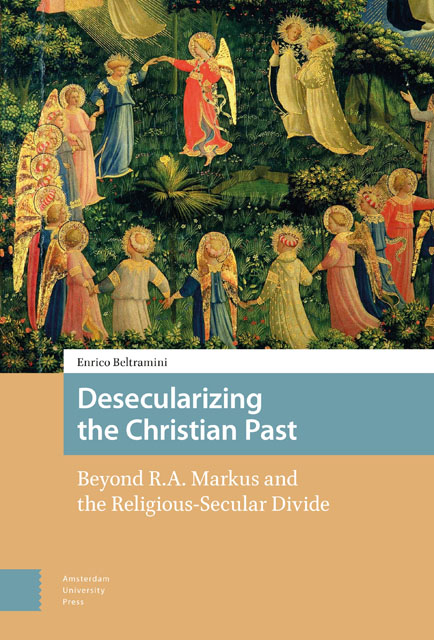6 - Augustinianisms
Published online by Cambridge University Press: 18 November 2023
Summary
Introduction
Scholars have interpreted Markus's saeculum (or better, Markus's interpretation of Augustine's The City of God) as a form of secularization of the Christian sense of history, particularly due to his emphasis on the neutral, autonomous character of the ancient secular. Others have instead seen Markus's saeculum as the result of a form of collapse of the duplex ordo cognitionis into one unique order—the order of the secular. This is the case of the already mentioned James Wetze, who accordingly spoke of “sacred secularity.” In this present study, the hypothesis is instead that Markus did not want to secularize the Church but to protect a dominion independent of the truths of revelation in which Christians can cohabitate with members of other religions and non-believers. The hypothesis is that Markus maintained the neo-scholastic mindset he eventually absorbed during his years of seminary, and in this chapter I will prove this hypothesis correct.
In his L’Augustinisme politique, Arquilliere framed his concern with regard to political Augustinianism—that is, the subordination of the political order to the Church—in terms of the relationship between nature and the divine. He argued that the political Augustinianism, the application of the thought of Augustine's The City of God to the political domain during the Middle Ages, corresponded to a misinterpretation of the Bishop of Hippo's intentions. The problem, according to Arquilliere, was that this application amounted to a distortion of the natural law institution of the state by the ecclesiastical law of the Church. Augustine's followers, in Arquilliere's opinion, did not develop a consistent theology of the relationship between nature and grace. Accordingly, in their work one can detect a tendency “to erase the formal separation of nature and grace,” to absorb the natural order into the divine order. It is this absorption, this amalgamation between the reign of the divine and the reign of nature, that amounted to a distortion. From Arquilliere's neo-scholastic perspective, this lack of separation between nature and grace was the question raised by political Augustinianism. The solution, therefore, was the rectification of this distortion, which consists of the reestablishment of the original separation. In practice, it equals the denial of the power of the pope to interfere directly in temporal affairs while giving a measure of autonomy to the secular. From Marrou's perspective, the problem is the opposite—the excessive separation between the order of nature and the order of the divine.
- Type
- Chapter
- Information
- Desecularizing the Christian PastBeyond R. A. Markus and the Religious-Secular Divide, pp. 159 - 186Publisher: Amsterdam University PressPrint publication year: 2023



